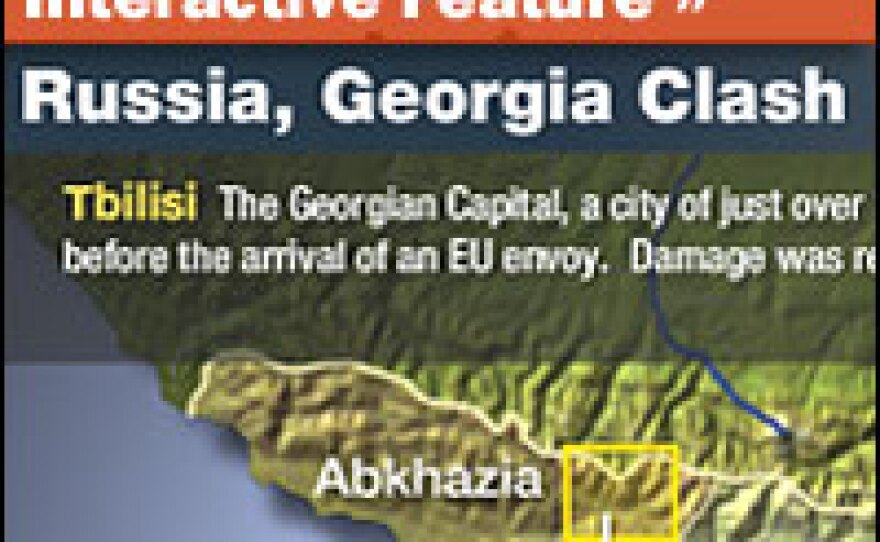Georgia's President Mikhail Saakashvili said Friday he had signed a cease-fire deal with Russia to end hostilities, but he accused NATO of "inviting Russian aggression" by rejecting his nation's entry into the West's mutual defense pact.
The announcement came in a joint news conference with U.S. Secretary of State Condoleezza Rice, who was in Georgia to get agreement on the truce brokered by French President Nicolas Sarkozy.
"Today, I signed the cease-fire agreement," the Georgian president said, flanked by Rice outside the presidential palace in the capital, Tbilisi. "This is not a done deal. We need to do our utmost to deter such behavior in the future."
The cease-fire deal was aimed at speeding Russia's withdrawal more than a week after Moscow's troops and tanks poured into the former Soviet republic to back separatists in South Ossetia.
Saakashvili blamed the West for not reacting strongly to previous Russian military moves and for failing to grant Georgia membership of NATO.
The desperation of Georgia to end Russia's occupation was made clear by Saakashvili, who earlier had compared the cease-fire proposal to the humiliation suffered by Czechoslovakia in the 1930s at the hands of the Nazis. He called Russia's continued presence on Georgian soil a "very nasty and very dangerous situation."
Rice, for her part, alluded to another era in Czechoslovakia's history at the news conference, saying Moscow must understand that "this is no longer 1968" — a reference to the Soviet crackdown on the nascent democratic movement known as Prague Spring.
"Our most urgent task today is the immediate and orderly withdrawal of Russian armed forces and the return of those forces to Russia," she told reporters. "Russian forces need to leave Georgia at once."
Earlier Friday, President Bush demanded that Russia withdraw its forces from the former Soviet republic, expressing solidarity with the beleaguered nation and asserting, "We will not cast them aside."
"Bullying and intimidation are not acceptable ways to conduct foreign policy in the 21st century," he said, adding that a contentious relationship with the United States is not in Russia's best interest.
The agreement came came as Russian troops continued to blockade the central Georgian town of Gori, which lies at the nexus of the country's main east-west highway about 45 miles west of Tbilisi.
By holding the city, Russian forces effectively cut Georgia in half. Russian military vehicles were blocking the eastern road into the city, although they allowed in one Georgian bus filled with bread.
Russian forces also are in several other cities deep in Georgia, including the Black Sea port city of Poti, officials said.
Copyright 2022 NPR. To see more, visit https://www.npr.org. 9(MDAzMjM2NDYzMDEyMzc1Njk5NjAxNzY3OQ001))






